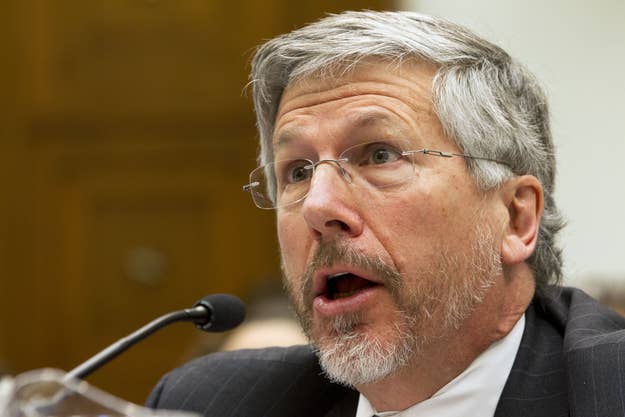
WASHINGTON — The Obama administration's top intelligence attorney aggressively defended the the use of widespread domestic spying operations Friday, arguing the programs disclosed by Edward Snowden are critical to the nation's safety.
Robert Litt, the General Counsel of the Office of the Director of National Intelligence, has increasingly become the public face of the NSA as Director of National Intelligence James Clapper has stayed more in the background after being caught lying to Congress about the NSA's data collection activities.
On Friday during an hour-long speech at the Brookings Institution, Litt argued that the telephone records collection and the PRISM program are being held accountable by all three branches of government and defended the fact that the Foreign Intelligence Surveillance Act court's rulings are classified. Still, Litt refused to go into detail about some of the aspects of the surveillance state which have most confused the American public in the wake of Snowden's disclosures.
Litt defended the mysterious FISA court from allegations that it does little to scrutinize requests from the intelligence committee for surveillance warrants.
"I would like to correct the erroneous claim that the FISA court is a rubber stamp," Litt said. "Some people assume that because the court approves almost every application, that it doesn't give the applications appropriate scrutiny." This, Litt said, is not true.
Asked by an audience member why the FISA court has to be so secret, Litt said "the fact that it's secret is a necessary consequence of the fact that it's overseeing secret activities."
"One of the hurdles to declassification earlier was that the existence of the program was classified," Litt said.
Litt said that the intelligence community welcomes a debate about surveillance tactics but that this should have happened without the aid of Edward Snowden.
"Discussion of these authorities can and should have taken place without these disclosures," he said.
Litt said that it was "It is too early to tell" if Snowden's leaks would change the way terrorists conduct their communications methods in the long term, but hinted that discussion of the leaks was flawed because "the disclosures were made by people who did not fully understand what they were talking about." He also called the disclosures "reckless."
He said that 54 terrorist threats had been foiled by NSA's programs, including 41 abroad, and that this was proof that the intelligence community requires a broad mandate to sweep up data pre-emptively, as opposed to using probable cause to collect data.
"We're trying to find out what's going to happen before it happens," Litt said.
"We do not indiscriminately sweep up and store the contents of communications of Americans or the citizens of any country," Litt said.
Litt said that the PRISM and telephone data (which has been ordered from "several telecommunications companies") is kept in "secure databases," and said that there were other databases as well for other materials.
"I don't know what's in every one of NSA's databases," he said when pressed about what was in these databases.
Litt's speech comes as criticism is heating up in Congress about the surveillance programs; Senator Ron Wyden (D-Oregon), one of the top civil libertarians in the Senate, is giving a speech on the subject next week.
